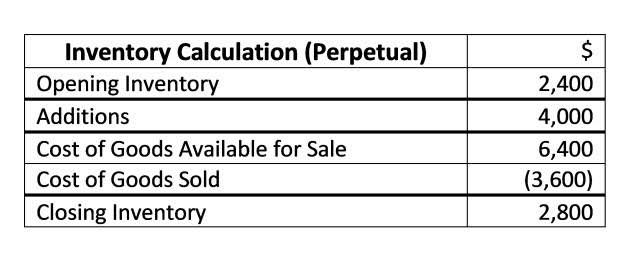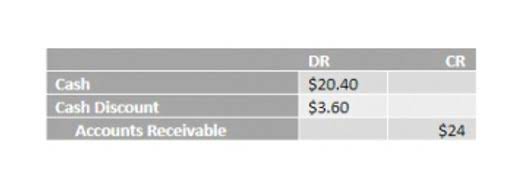
The position can be assisted by an outside CPA who advises on how to record certain of the more complicated business transactions. For example, a billing clerk, payables clerk, or payroll clerk may report to the bookkeeper. The professional services accounting software used can impact the price of the service. Maybe the freelancer is experienced in a single software and charges a lower rate for it. You can also find experts in numerous accounting software that charge more. The more experienced the bookkeeper, the more confident they are with their skills.
Training Requirements for a Full Charge Bookkeeper

Many employers require at least 2-5 years of experience in bookkeeping or accounting, particularly in handling full charge bookkeeping responsibilities. For senior level positions or roles in larger companies, candidates might need more than 5 years of experience. To become a Full Charge Bookkeeper, candidates typically need to have at least 2 to 3 years of bookkeeping or accounting experience. Our ideal candidate has a Finance degree and is familiar with accounting software packages, like QuickBooks and FreshBooks. As a full charge bookkeeper’s career progresses, they should look for opportunities to gain specialized knowledge in distinct industries. For instance, experience in grant accounting could propel their career forward in the non-profit sector.

Financial Controller
- However, as a business grows and its financial processes become more complex, the role of a full charge bookkeeper becomes increasingly essential.
- However, mistakes or omissions may additionally occur during regular statistics entry procedures.
- After all, accounting is the process of compiling account information, analyzing it, and providing strategic advice.
- Deciding between an in-house bookkeeper and outsourced services depends on several factors.
- A Full-Charge Bookkeeper is key for keeping a company’s finances in check, no matter the size.
- A full charge bookkeeper handles a wide range of responsibilities beyond traditional bookkeeping.
They are responsible for reconciling bank statements, ensuring that all transactions are properly categorized and recorded in the general ledger. Full charge bookkeepers also make necessary adjustments to journal entries to correct any discrepancies found during the reconciliation process. A full charge bookkeeper takes on full responsibility for managing all the accounting functions within a small to mid-sized company. They handle a wide range of financial tasks, from day-to-day transactions to complex reporting, ensuring the business has an accurate picture of its financial health at all times. However, in this role, they have to take the responsibility of managing the complete cycle of accounting duties on behalf of the company. The distinction between a regular bookkeeper and a full charge bookkeeper primarily resides in their level of responsibility and the complexity of their tasks.
Educational and Training Requirements for Full-Charge Bookkeepers
Financial reporting translates complex financial data into accessible information for stakeholders. For a full charge bookkeeper, this bookkeeping and payroll services involves preparing financial statements and ensuring their accuracy, clarity, and compliance with regulatory standards. Financial reporting is a tool for communicating the organization’s financial health and performance to managers, investors, and creditors. Ideally, hire part time bookkeepers when you can do some of the accounting yourself, and could use extra help for employee timesheets, accounts payable, and accounts receivable tracking. Even if you hire a part time bookkeeper, your management would still have to review their work.
They manage an organization’s bookkeeping needs, from recording financial transactions, processing invoices and payroll, reconciling bank statements, and preparing financial statements. They handle the daily financial activities, ensuring all transactions are accurately recorded on time. In financial management, full-charge bookkeeping is crucial in maintaining accurate and up-to-date financial records for businesses. This comprehensive approach encompasses various responsibilities that go beyond traditional bookkeeping tasks.
- It’s always a good idea to do some level of onboarding regardless of a hire’s past experience.
- ” question and explain the job’s duties, responsibilities, educational requirements, and more.
- A full-charge bookkeeper has more control over your general ledger than a typical bookkeeper.
- Whether choosing a bookkeeper, full charge bookkeeper, or utilizing a combination of both, the goal remains accurate, reliable, and efficient financial management to support business success.
- Think of full charge bookkeeping as a mix between traditional bookkeeping and accounting.

Some Full Charge Bookkeepers also manage a company’s cash flow, maintaining a close eye on credits and debits to ensure the company remains financially sound. Full Charge Bookkeepers are well-versed in accounts payable and receivable, payroll, and bank reconciliations. We are looking for a detail-oriented Full Charge Bookkeeper to manage all financial transactions, from fixed payments and variable expenses to bank deposits and budgets. To excel as a full charge bookkeeper, one must bookkeeping possess a unique blend of educational qualifications, technical expertise, and soft skills.

Industry Certifications and Training Courses
For example, they prepare and enter journal entries for fixed assets and depreciation. Most companies already have a bookkeeper, which makes it reasonable to ask what’s different about a full-charge one. But what is a full charge bookkeeper it is important to know when the role of a full-charge bookkeeper may be right for you. Again, it is important to assess your current overhead spend to determine if a full-time hire is needed right now. It is possible to work as a bookkeeper with only a high school diploma and in-house training. Now that you understand what a full charge bookkeeper is, you might be wondering how they might differ from in-house bookkeepers.
- Before they can practice professionally, full charge bookkeepers are required to obtain certification from a recognized institution.
- You can, but businesses that DIY their bookkeeping may be unaware of the hidden costs that can come with inefficiency, human error or missed opportunities and insights.
- As your accounting function grows and the roles get distributed across more employees, a controller could help oversee your accounting function.
- Having the proper education and experience is crucial, but it’s not the most important factor in determining the price of the service.
- You will report directly to the owner of the organization and will engage outside CPA firm to prepare financial statements and tax returns as needed.
Hiring a bookkeeper for payroll services costs $40 to $100 per hour where they handle day-to-day financial record keeping and payroll processing. Suppose there is a growing small business named “GreenTech Landscaping.” They provide landscaping and garden maintenance services. When GreenTech was a very small company, the owner, Laura, handled all the bookkeeping duties. But as the business grew, she realized she needed a professional to take over the finances so she could focus more on strategic and operational aspects.